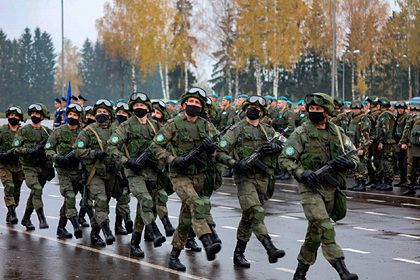The Russian army is not capable of waging a prolonged war in Europe, because it has limited logistical capabilities, writes on the pages of the American edition of War on the Rocks, military analyst Alex Vershinin.
The publication claims that the main way of supplying the Russian army is the railway system, which is developed in the countries of the former USSR. It is noted that Russian railways are distinguished from most Western ones by a wide gauge. It is proved that damage to key railway junctions in countries bordering Russia will create problems in the supply of the Russian army in the event of its attack on Europe.
According to Vershinin, this circumstance means that the Russian army is capable of a lightning war in countries bordering Russia, but has limited capabilities for conducting full-scale military operations in large European spaces. The author is confident that pulling the Russian army away from its major logistics hubs will allow NATO to increase its capabilities in the conflict zone.
In October, the American edition of Breaking Defense wrote that the joint exercises of Russia and Belarus "West-2021" officially ended, leaving behind the "main question" to the Russian army. "The real question with which to begin evaluating the exercises is not what Russia brought with it, but what Russia left behind," the publication said.
In September, Defence24 wrote that the basic scenario of Russia's offensive on Poland and Lithuania involves the early introduction of Russian troops into Belarus, which was worked out by Moscow and Minsk during the rear part of the joint exercises "West-2021".
In August, the same Polish publication noted that the current state of the Russian army does not allow ignoring its capabilities for conducting operations and regrouping forces, as well as redirecting the Russian economy to the rails of military construction.
Ivan Potapov




